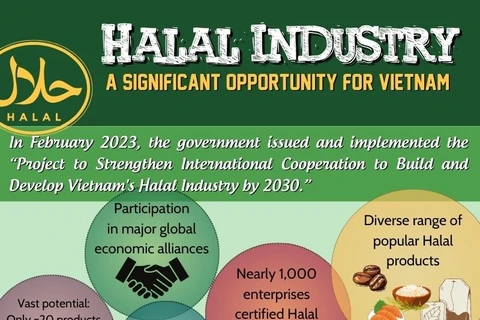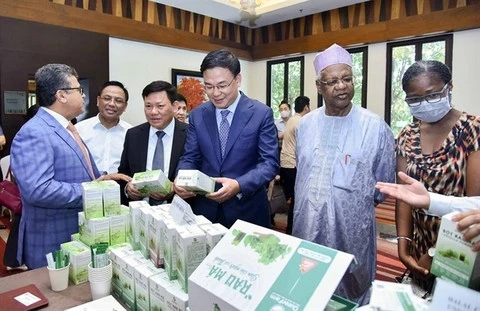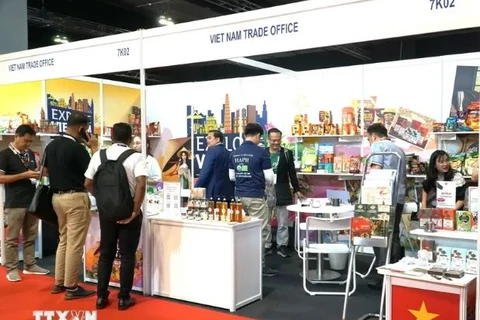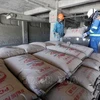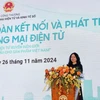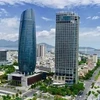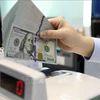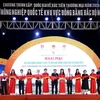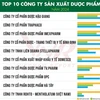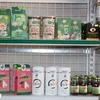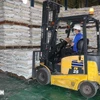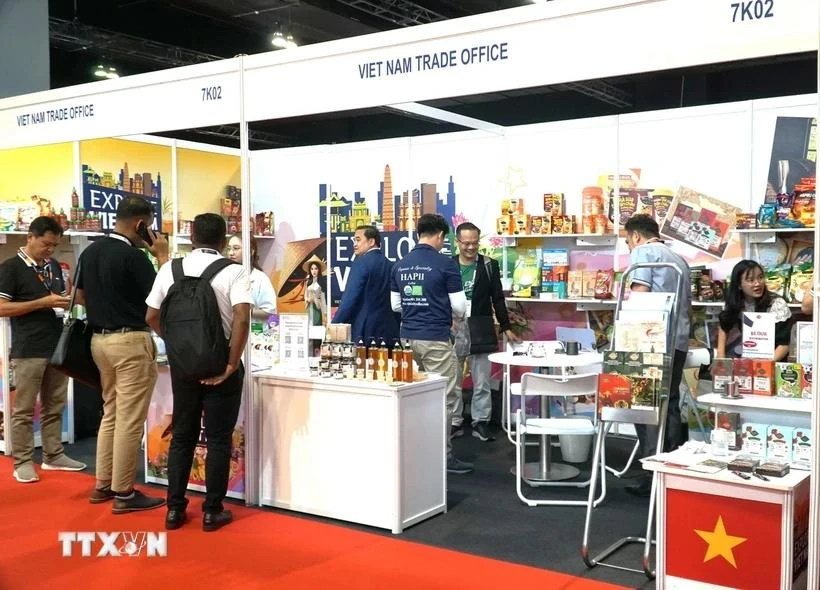
Hanoi (VNA) - Halal products for export require critical international certification and adherence to Halal standards, heard a conference on trade performance held on November 14 in Ho Chi Minh City as part of the Vietnam Foodexpo 2024.
The global Muslim community exceeds 2 billion, representing around 25% of the world’s population. Most Muslims reside in Asia, particularly in ASEAN. Over recent years, the demand for Halal-certified products has surged, evolving into a global trend.
According to the UN Food and Agriculture Organisation (FAO), global Muslim spending on Halal food is projected to reach 1.9 trillion USD in 2024 and 15 trillion USD by 2050. Notably, Halal products appeal not only to Muslims but also to broader markets, thanks to their quality, safety, and sustainability credentials.
Nguyen Minh Phuong, head of the Asia-Africa Market Department at Vietnam's Ministry of Industry and Trade, noted that regions like the Middle East, with nearly 600 million residents, depend heavily on food imports. Similarly, North Africa’s food demands are largely met through imports. These regions present significant opportunities for Vietnam’s Halal exports, particularly seafood, agricultural products, and processed foods.
In 2024, Vietnam’s Halal exports are expected to approach 700 million USD, with the UAE, Saudi Arabia, and Egypt being key markets. Vietnam’s total food export value to these areas is estimated to comprise 30–35% in value.
Despite being a global export powerhouse, Vietnam is not yet among the top 30 global suppliers of Halal products. Le Chau Hai Vu, Director of Consultech, attributes this to fragmented efforts by Vietnamese enterprises. Meeting Halal standards requires strict adherence to guidelines such as using materials free of Haram components and ensuring that production and packaging maintain Halal integrity.
To address these challenges, businesses must obtain Halal certification from internationally recognized bodies. This certification assures buyers that products meet the necessary standards for Halal compliance.
Vietnam ranks among the top 20 global food exporters and is a leading exporter of agricultural products. Additionally, Vietnam has signed 17 free trade agreements (FTAs), including next-generation pacts, positioning it favorably in global supply chains.
However, competition is fierce, particularly from countries like Malaysia, Indonesia, and Thailand, which have established reputations in Halal exports. Vietnamese exporters also face cultural and consumer preference differences in regions like the Middle East and Africa. Adjusting marketing strategies, packaging, and product development to suit these preferences is essential.
Nguyen Minh Phuong advised leveraging trade promotion activities, including international fairs and government-led trade delegations, to strengthen access to these markets. She also highlighted the importance of understanding import regulations, customs procedures, and tax structures in target countries.
Nguyen Thi Ngoc Hang, Marketing Director at the Halal Certification Agency, emphasises the importance of accurate and honest information during the Halal certification process. Certified products must avoid designs, logos, or symbols that contradict Islamic principles. Product names should not imply association with non-Halal items or Christian celebrations, such as "Christmas" or "Valentine."
Vietnamese businesses should choose certification bodies recognized by major Halal authorities, such as Malaysia’s JAKIM or Indonesia’s BPJPH. Currently, Vietnam has only one internationally recognised certification body, the Halal Certification Agency (HCA). The limited availability of reliable certification information is challenging for enterprises.
In February 2023, the Vietnamese government approved a national strategy to develop the Halal industry by 2030. This plan aims to enhance Vietnam's capacity to integrate into global Halal supply chains, enabling deeper participation in international markets.
A credible certification system and robust trade promotion initiatives will help Vietnamese businesses not only penetrate Halal markets but also build global brand recognition. By aligning with international standards and tapping Vietnam’s strengths, the country can position itself as a significant player in the Halal food industry./.
